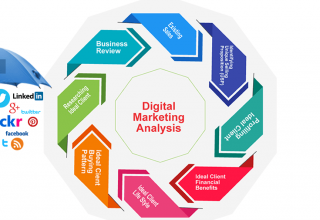
Back in my earlier days as a banker, my supervisor had a harrowing story he used to drive the point of personal finance management home. There was a certain lady in charge of marketing in a bank immediately when mobile phones flooded the Kenyan market. And almost as a pertain, a number of days, she could leave her office unattended for a number of hours, her coat hanging and insist that in case any person comes to the reception area asking for her, the guests should be informed that she was not likely to come back.
In equal measure a certain gentleman would come in all the same and enquire about her presence. What many in the office did not know was that she had borrowed money to quick fix her family financial issues from intermediaries that advance instant cash against a movable item like a car or pay slip. As a borrower, she would promise when payments will be done but leave the office at due time.
It is hard to walk a hundred metres in the streets of Nairobi and miss a billboard announcing credit against either electronics or other items. Such intermediaries, called shylocks and normally unregulated by any government body, charge exorbitantly. Their interest rates could be as high as 30% per month, accumulating to around 100% in three months.
What causes people to borrow at such rates? The process of acquisition is pretty simple. The funds are thus made available in record time, and when one needs them. The allure to frequently borrow with the slightest need is hence irresistible for most people with regular income. This is worse for business people whose needs are so dynamic but the returns to cushion such high cost of funds are not always available.
So, for those who are looking at accessing credit, there are background checks that one has to do. A prudent borrower considers the cost of funds, in comparison to the expected returns in their business. It is possible to borrow at higher rates if that brings any convenience and access, again if one over the time has realized high returns that match this cost and guarantee profits. Those who rush to shylocks in most times regret at non-payment, because again such lenders are ruthless in their recovery process. All in all avoiding engagements with shylocks at all times would be the best financial borrowing decision a borrower does.
And so my supervisor would end the sad story on how the lender came unannounced to demand his dues, just when the lady of marketing was having a meeting with the bank’s chief executive officer. The lender decided to cause drama in the offices which included banking hall full of customers, and the rest is history.
For the many businesspeople and individuals caught in the trap of borrowing from shylocks, here are a few things to consider. You have an obligation to honour commitments earlier engaged into. It will be important to come up with an exit plan which includes proper planning to ensure as loan payments are done, you slowly move into more formal and structured credit access. This saves you embarrassment for not honouring the duty to repay and helps the business to assimilate affordable credit.
So, next time you think of loans, you might need to discuss the cost well with your bank. Above all, avoiding expensive intermediaries especially shylocks, might be a priority.

















